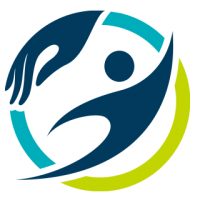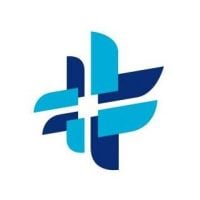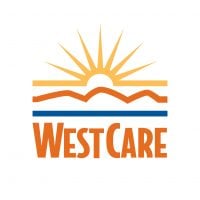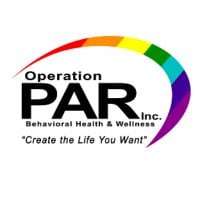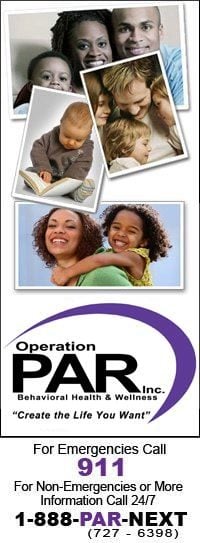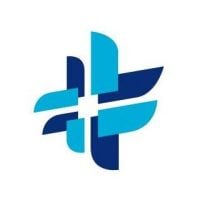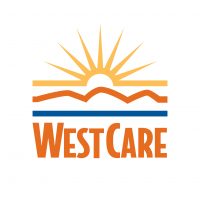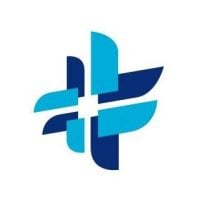Springbrook Outpatient Center
Drug Rehab Center in Holiday, Florida
At Springbrook Outpatient Center, they provide specialized dual diagnosis treatments, aftercare support programs, and highly trained professionals to help individuals struggling with substance abuse disorders achieve long-term sobriety in an atmosphere of comfort and safety that is accredited by SAMHSA and JCAHO.
About This Florida Facility
Springbrook Outpatient Center, situated in the tranquil city of Holiday, Florida, is a private rehabilitation facility that specializes in treating individuals with dual diagnosis and mental health issues. With a strong focus on providing comprehensive and personalized care, Springbrook Outpatient Center has established itself as a trusted name in the field of addiction treatment.
• Dual Diagnosis Expertise: Springbrook Outpatient Center excels in addressing the complex interplay between mental health disorders and substance abuse.
• Accredited Care: The center holds certifications from both SAMHSA and JCAHO, ensuring adherence to the highest standards of treatment.
• Diverse Treatment Options: From outpatient services to intensive inpatient programs, Springbrook Outpatient Center offers a range of care levels tailored to individual needs.
• Aftercare Support: The facility provides ongoing support and resources to help clients maintain their recovery journey beyond treatment.
Springbrook Outpatient Center's commitment to excellence is evident through its SAMHSA and JCAHO accreditations. These certifications demonstrate the center's dedication to providing evidence-based practices and maintaining a safe, supportive environment for its clients. The facility's experienced team of professionals works collaboratively to develop personalized treatment plans that address each individual's unique challenges and goals.
In addition to dual diagnosis, Springbrook Outpatient Center effectively treats a wide range of substance abuse disorders, including drug addiction and alcoholism. The center employs a multidisciplinary approach, combining evidence-based therapies, such as cognitive-behavioral therapy and medication-assisted treatment, with holistic practices to promote overall wellness. Springbrook Outpatient Center offers various levels of care, including outpatient services, partial hospitalization, and inpatient treatment, ensuring that individuals receive the appropriate level of support throughout their recovery journey.
Genders
Ages
Modality
Additional
Accreditations
SAMHSA

JCAHO
Conditions and Issues Treated
Substance Abuse Treatment is important when getting sober, as it helps addicts learn the skills they need to live a clean life. There are many different kinds of recovery treatment, including medication-assisted therapy, behavioral therapeutic approaches and self-help groups, as well as counseling.
When addiction and psychiatric issues co-occur, the addict’s recovery is more successful when both conditions are treated. A dual diagnosis refers to a condition in which the patient is diagnosed with two health issues: addiction and bipolar disorder. The most common therapies are psychotherapy, behavioral therapy, spiritual counseling, 12-step programs, and medication management.
Levels of Care Offered at Springbrook Outpatient Center
This center offers a variety of custom treatment tailored to individual recovery. Currently available are Aftercare Support, Dual-Diagnosis, Inpatient, Outpatient, Partial-Hospitalization, with additional therapies available as listed below.
Inpatient treatment centers offer a safe, secure, and often medically supervised environment for drug or alcohol-addicted individuals. Many of these facilities are equipped to provide detoxification, treatment for co-occurring mental health disorders, and aftercare programs. The patient typically spends 28 to 30 days at the facility and will receive extensive drug counseling.
An outpatient treatment program is set up to help with alcohol or drug addiction or a co-occurring disorder. The patient must attend the facility for their therapy and other programs but can return home each night.
The frequency of mandatory attendance decreases after much of Springbrook Outpatient Center‘s program is complete.
Outpatient treatment is a recovery approach that allows recovering addicts to live at home while getting rehab for addiction
An outpatient can include day treatments which include attending group sessions one hour per week. A person living in an outpatient environment may be allowed the opportunity to work full time if they choose to and continue studies without interruption from drugs/alcohol.
Outpatient treatment is an option for people who want to maintain their careers and families. Outpatients live at home but attend treatment such as individual counseling, group counseling, or twelve-step meetings during the day.
PHP is another way to receive a significant amount of treatment while decreasing the time commitment and cost. It involves counseling, group meetings, peer interaction, and many of the same benefits of inpatient treatment. This can be a good option for stepping down from inpatient treatment in anticipation of a fully independent life.
Aftercare support is vital to the success of someone in drug or alcohol treatment. It involves assisting with entering a sober living home, getting career counseling or educational assistance and even getting the individual lined up with programs like AA and NA. This support helps recovering addicts readjust to normal day-to-day activities and maintain sobriety.
When a person is in drug or alcohol treatment, they have to increase their focus on themselves. They need to learn how to recognize the triggers that cause them to relapse and learn the habits that would benefit them if they were to be sober. This is all part of the growth in recovery, and aftercare is essential to that process.
Therapies & Programs
At Springbrook Outpatient Center , to learn from past mistakes and improve one’s situation, the recovering person meets individually with a therapist. The counselor or therapist will address addiction causes, triggers, mental issues, dual diagnosis, and aftercare plans during this time. This is a very intense and challenging process. Some clients find it easier to open up to someone other than family or friends who understand their struggles with addiction.
In group therapy, recovering addicts meet with a therapist and other people in recovery. Some groups are closed, meaning only people who share the same addiction or problem can attend. Others are open to anyone who wants to stop using drugs or drinking alcohol. Group therapy sessions typically focus on one topic each week or month so that recovering addicts can discuss issues they face daily.
Dialectical Behavior Therapy (DBT) is a type of therapy created in the late 1980s and early 1990s. It was designed to help people with high rates of suicidal behavior.
The goal of DBT is to teach mindfulness, distress tolerance, emotion regulation, and interpersonal effectiveness to help people learn how to live a life that is no longer controlled by overwhelming emotions and urges.
DBT is beneficial in treating drug addiction because it helps patients understand and cope with their cravings for drugs or alcohol rather than turning to those substances as a way of coping.
Cognitive Behavioral Therapy (CBT) is based on the idea that how we feel, think and act all interact together. It helps people explore their thoughts for problems (or false beliefs) that influence their mood and actions. CBT is very goal-oriented, which means that the therapist and patient work together on a specific problem. In addition to helping a client focus on thoughts that can be changed, CBT also allows them to take an active role in their treatment. Our thoughts determine our feelings and behaviors; our feelings affect our thoughts, and our behaviors change our thoughts and feelings.
Patient Experience
Experiential Therapy at Springbrook Outpatient Center
Experiential Therapy is a different way of thinking about addiction treatment. It uses physical activities to help work through troubling emotions, memories, and trauma that are sources of psychological issues like addiction.
Experiential Therapy can be an effective option for those who have struggled with past traumas or challenges associated with life decisions such as drug use. The non-traditional approach helps people deal more effectively with these struggles. It also allows them to gain new perspectives on their behavior patterns by recreating experiences in healthy ways rather than continuing old habits that may no longer serve them.
Payment Options Accepted
For specific insurance or payment methods please contact us.
Is your insurance accepted?
Ask an expert, call (888) 674-0062
Additional Details
Specifics, location, and helpful extra information.
Holiday, Florida 34691 Phone Number(727) 934-3223 Meta DetailsUpdated April 15, 2024
Staff Verified
Patient Reviews
There are no reviews yet. Be the first one to write one.
Holiday, Florida Addiction Information
Florida is one of the nation's epicenters for substance abuse and drug-related overdoses. In 2014, around 410,000 Florida residents were addicted to drugs and alcohol. Over the last 10 years, 12% of all deaths in the state were attributed to substance abuse. Treatment admissions for alcohol reached 24,329 patients in 2016, and 2.5% of Florida high school students admitted to using crack cocaine.
Treatment in Nearby Cities
- North Miami, FL (223.3 mi.)
- Quincy, FL (200.5 mi.)
- Wellington, FL (184.7 mi.)
- Floral City, FL (48.2 mi.)
- Macclenny, FL (150.5 mi.)
Centers near Springbrook Outpatient Center
The facility name, logo and brand are the property and registered trademarks of Springbrook Outpatient Center, and are being used for identification and informational purposes only. Use of these names, logos and brands shall not imply endorsement. RehabNow.org is not affiliated with or sponsored by Springbrook Outpatient Center.




